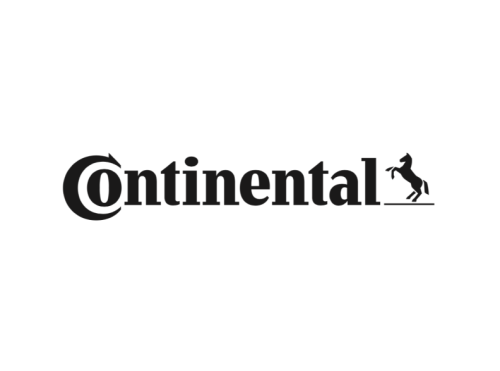ITCILO and the private sector
ITCILO and the private sector
The ILO Decent Work Agenda is key in accompanying socially responsible companies to improve productivity, foster competitiveness, and improve market access, while respecting fundamental principles and rights at work, and international labour standards.
The public and private sectors working together can create positive working experiences for both workers and employers and a conducive business environment. The MNE Declaration and the ILO Declaration on Fundamental Principles and Rights at Work provide clear guidance on how enterprises can foster decent work.
That collaborative spirit is what the ITCILO aims to support in its public-private partnerships. Through institutional capacity development projects and training activities, the ITCILO helps companies implement better understand the main principles and tools designed to achieve Decent Work for all and responsible business.
In this way, the ITCILO works with companies to help them promote inclusive and sustainable economic growth, employment, social justice and decent work for all, thus contributing to SDG 8 and the broader 2030 Agenda. In particular, companies that report to the UN Global Compact can count on the ITCILO for support on social protection policies, social dialogue, and labour standards.
ITCILO engages with private sector entities that share ILO’s values and that respect its constitutional mandate. To ensure alignment with these core values and principles when establishing a new partnership, ITCILO applies due diligence processes in line with the ILO Guidelines for Public Private Partnerships.

We offer customized activities on topics like:
- Responsible business conduct
- Labour disputes
- Social dialogue and industrial relations
- Occupational safety and health
- Gender equality and non-discrimination
Our courses and activities are designed to respond to companies’ most pressing needs and help them achieve sustainable growth. For example, a company might seek to improve its understanding of the Decent Work Agenda, while at the same time mainstreaming fundamental principles and rights at work with suppliers and business partners across supply chains. That is where we come in.
Responsible business conduct is all about adhering to principles related to international labour standards, complying with national legislation and buyers’ codes, improving working conditions, and respecting workers’ rights. It is also one way to make business more competitive, successful and sustainable
Disputes in the workplace lead to lower production processes and employee satisfaction. That is why the ITCILO has developed training packages aiming to disseminate best strategies and tools to prevent labour disputes from happening in the first place, and mitigating their impact when they do.
We help companies reducing the level of conflict in the workplace by understanding the guiding principles of conflict prevention and management, applying best practices, and improving existing processes. Learning topics include conflict prevention, grievance mechanisms, workplace cooperation etc…
Social dialogue is of a paramount importance for achieving Decent Work. One main goal is to achieve quality decisions and policies by involving the main actors: employers, workers, and their representatives. Effective social dialogue helps companies deal with problems like COVID-19 pandemic, inequalities, and solid growth.
Our courses help promote sound industrial relations at workplace. For that reason, we work with companies to explore good practices that meet the needs and concerns of all parties involved, bearing in mind that there is no “one size fits all” model of social dialogue.
A safe and healthy working environment is critical not only to a safe workforce, but also a productive business. This is even more important now, as the world battles an ongoing health crisis. Our main objective is a world of work with zero workplace deaths, accidents and diseases.
Occupational safety and health, including compliance with the OSH requirements pursuant to national laws and regulations, is a necessity for responsible businesses and employers.
We offer training activities that help companies comply with OSH requirements and manage health and safety at work. Our courses cover a range of topics, including risk assessment, prevention, health and safety committees, COVID-19 crisis, fire safety, and hazardous substances. Together, we can protect workers’ safety and health throughout supply chains.
Freedom from discrimination is a fundamental human right. Women, in particular, are major contributors to supply chains; they are disproportionately affected by decent work deficits in global supply chains.
It is important to recognize and avoid bias in processes and practices at work. We help companies build more respectful and inclusive workplaces. Through well-established participatory methods and research, companies are guided to recognize and avoid organizational processes and practices, which may lead to inequitable and/or discriminatory outcomes. Together, we can promote a future of decent work with gender equality and cultivate a culture of inclusion.
Our work with the private sector
Bringing learning and training solutions to global enterprise
Over the years, the ITCILO has engaged with the private sector and multinational enterprises. We respond to companies’ specific needs with innovative learning and collaboration solutions, boosting decent work along the way.
As the fallout from COVID-19 continues, the Centre is developing new solutions to face new challenges in the business world. So far, we have united stakeholders at a time of social distancing, supported business in the wake of the pandemic, and designed tailor-made services to meet changing needs.
And there’s much more where that came from. Contact us today to learn more.
Here are some examples of our private sector partnerships:
H&M
The company’s national monitoring committees are composed of trade unions and H&M representatives. They develop short- and long-term plans for implementing the Global Framework Agreement at suppliers together with IndustriALL, its affiliates, and Swedish trade union IF Metall. And we helped enhance their capacity to do that work better.

Continental Mexico
We designed conflict prevention and management activities, ultimately improving consensus-building approaches in the workplace.

IKEA
We have supported IKEA’s Work Council members to better understand the function of the Works Council. We also supported their discussion on the future of work and its possible impact on the operation of the company.

Groupe Renault
We hosted a multi-language workshop for 14 high-level managers and workers’ representatives on our ITCILO campus in Turin, Italy. By the end of the workshop, participants walked away with a better understanding of the main ILO instruments on the fundamental principles and rights at work including freedom of association and collective bargaining.

PUMA
To strengthen PUMA’s commitment to promote responsible business conduct and occupational safety and health throughout their operations and network of business partners, we created online customized training packages and in-person virtual workshops to support PUMA in the promotion of RBC and OSH throughout their operations and the network of business partners. We also prepared PUMA staff to train suppliers and colleagues to enhance respect of Fundamental Principles and Rights at Work and strengthen adherence to PUMA’s sustainability targets and standards.

ITCILO and the private sector
Contact us to learn more
pmsu@itcilo.org